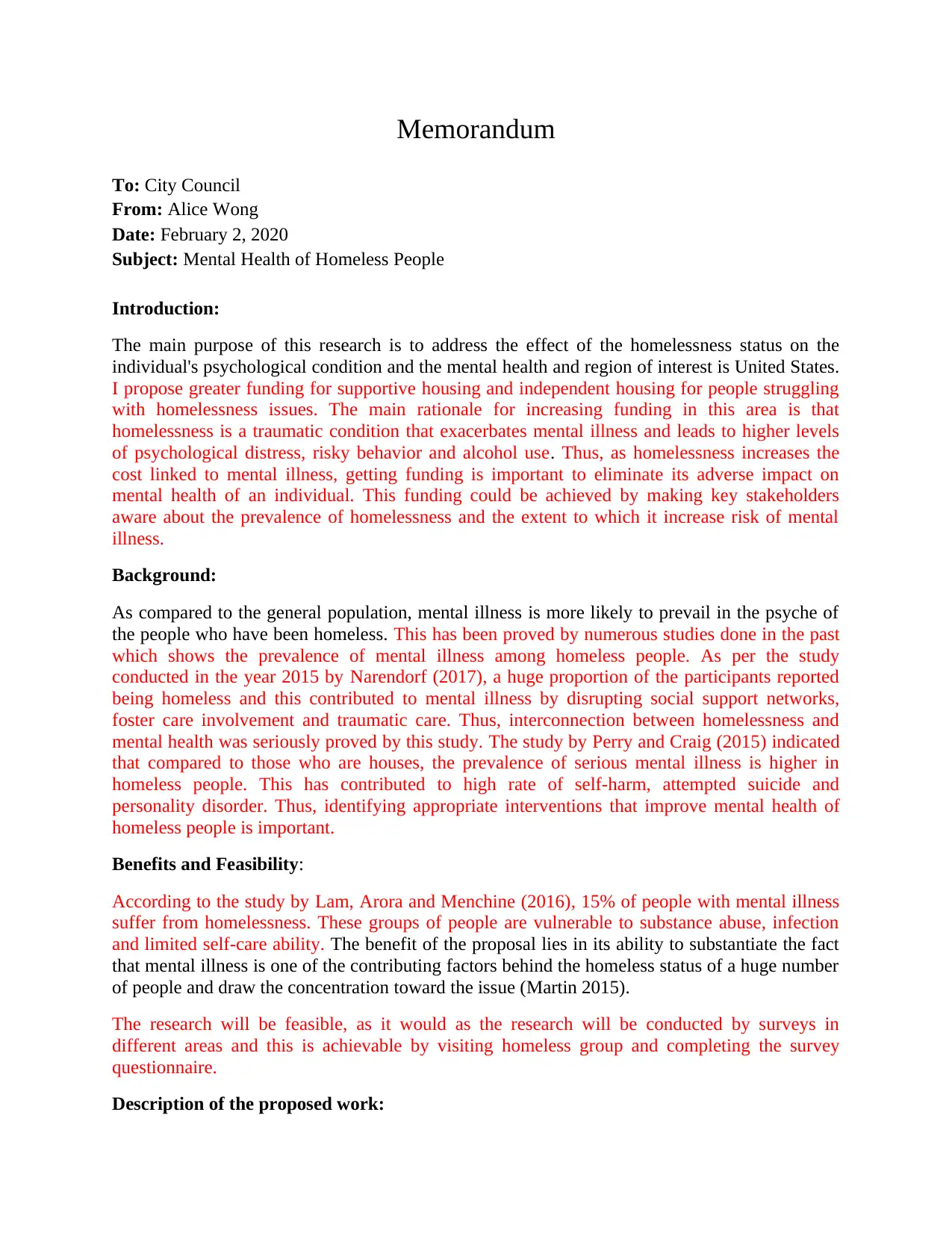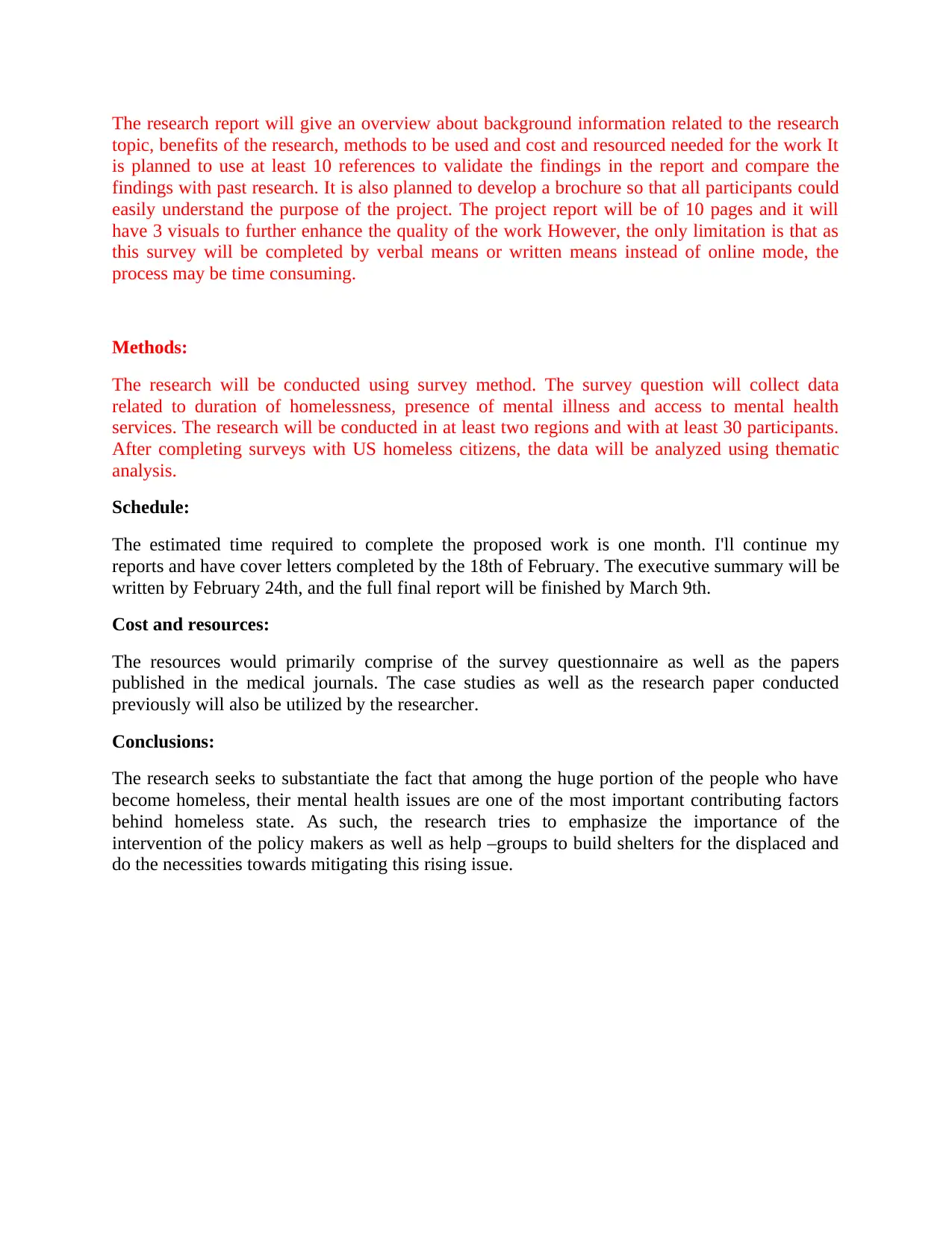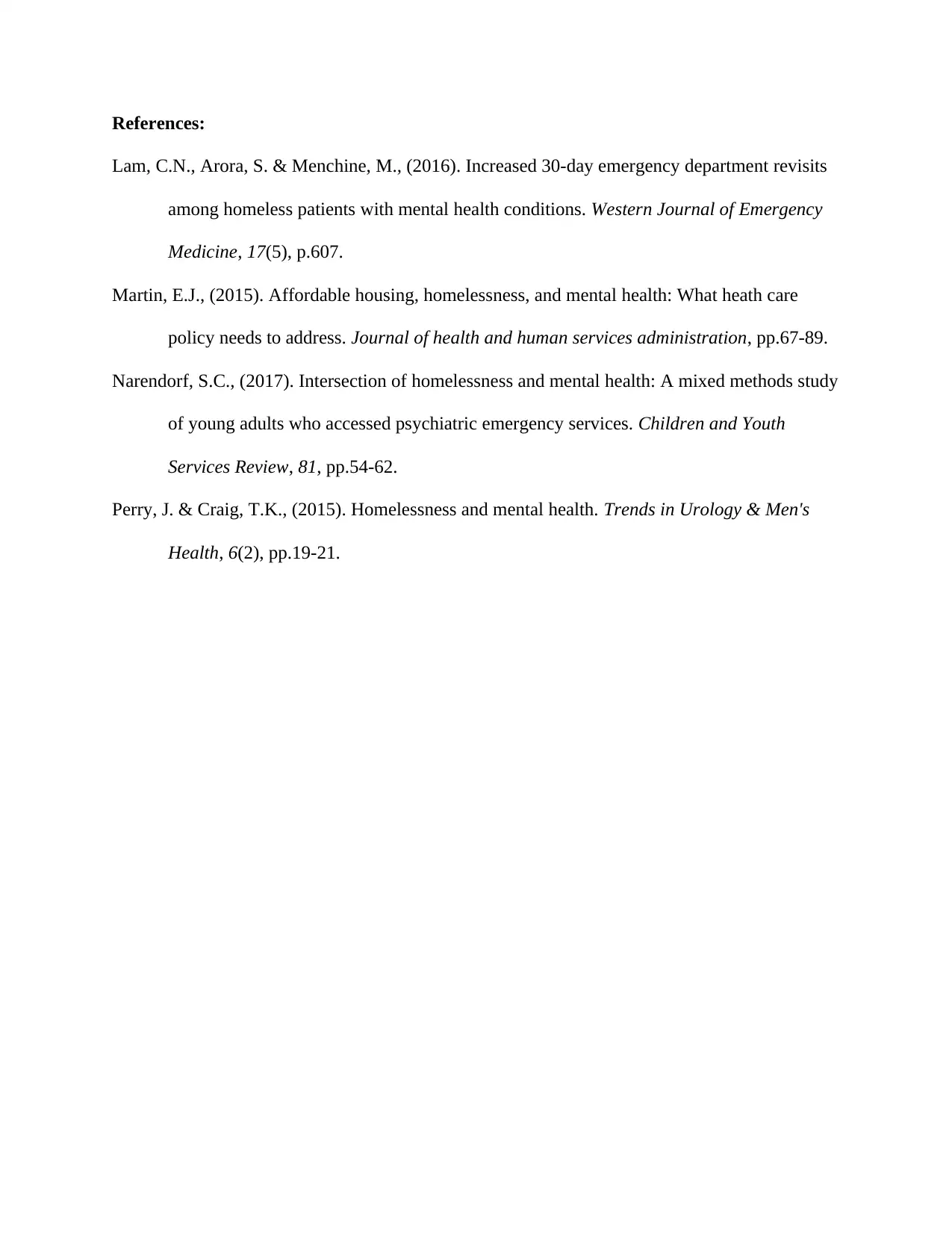Addressing Mental Health of Homeless People: A Proposal Report
VerifiedAdded on 2022/08/14
|3
|981
|12
Report
AI Summary
This report, authored by Alice Wong, is a proposal submitted to the City Council addressing the critical issue of mental health among homeless populations in the United States. The core argument centers on the exacerbating effect of homelessness on mental illness, advocating for increased funding towards supportive and independent housing initiatives. The proposal highlights the prevalence of mental health issues among the homeless, citing studies that demonstrate the link between homelessness, psychological distress, and risky behaviors. The report outlines the benefits and feasibility of the proposed work, including survey-based research to collect data on homelessness duration, mental illness, and access to mental health services. The methodology involves surveys across multiple regions with at least 30 participants, followed by thematic analysis. The report provides a schedule, cost estimates, and resource requirements, concluding with a call to action for policymakers and support groups to address the crisis. The research aims to underscore the importance of intervention and the development of shelters for the displaced. The report references several studies supporting the arguments and provides a clear plan for data collection, analysis, and dissemination of findings.
1 out of 3










![[object Object]](/_next/static/media/star-bottom.7253800d.svg)